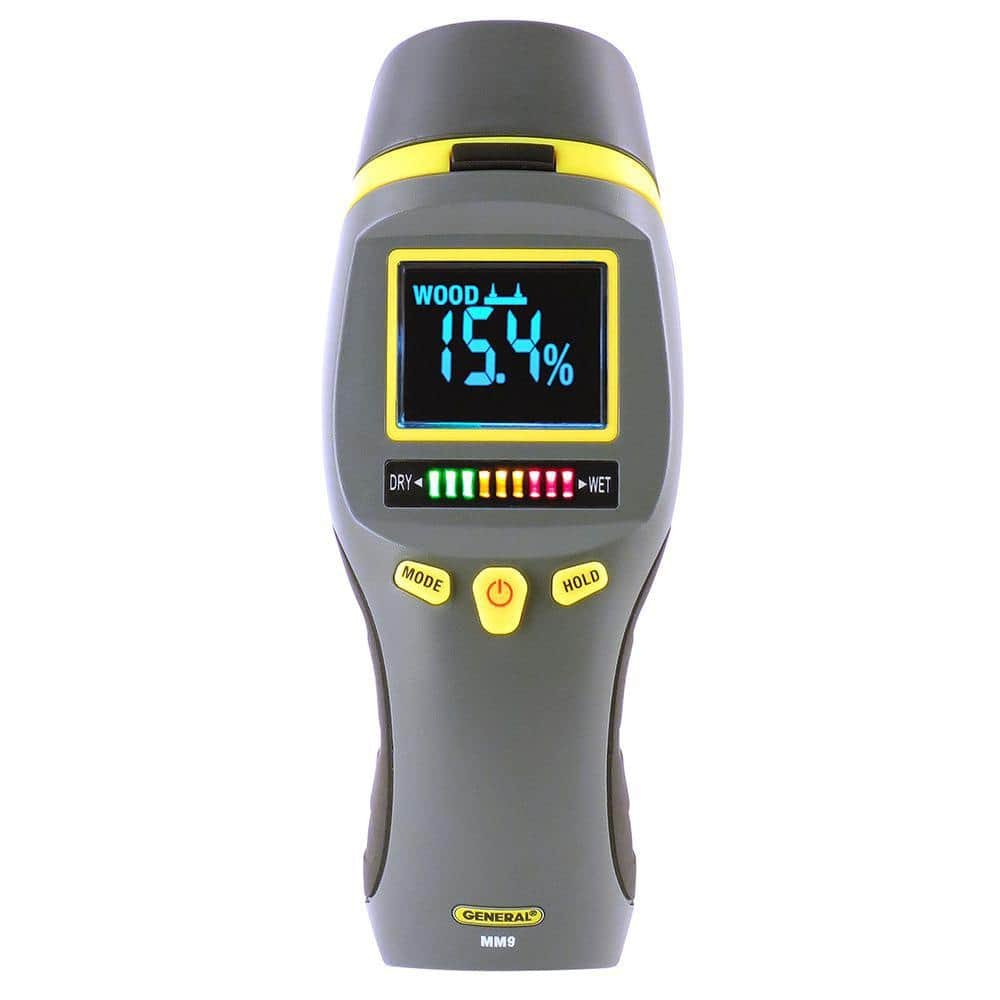The Ultimate Guide to Choosing the Right Moisture Meter for Your Requirements
The Ultimate Guide to Choosing the Right Moisture Meter for Your Requirements
Blog Article
The Ultimate Overview to Moisture Meters: A Comprehensive Overview and Just How They Can Save You Cash
Dampness meters serve as vital devices in discovering and monitoring moisture content in products, assisting in avoiding pricey damages and making sure the top quality of products. Understanding the nuances of various types of moisture meters, their applications, and the prospective cost-saving advantages they supply can be a game-changer for companies and experts alike.
Kinds Of Dampness Meters
One common kind is the pin-type moisture meter, which gauges the electrical resistance between two pins placed right into a product. Pinless dampness meters, on the various other hand, use electromagnetic sensor plates to check a bigger location without triggering damage to the material's surface area.

Infrared wetness meters measure the thermal residential or commercial properties of a material to establish its wetness content non-invasively, making them useful for applications where pin or pinless meters might not be appropriate. Recognizing the various kinds of moisture meters readily available can aid industries choose the most proper device for their specific wetness dimension demands.

Advantages of Utilizing Dampness Meters
Wetness meters provide vital advantages in accurately keeping an eye on and examining wetness levels in diverse products and atmospheres. One of the main benefits of using moisture meters is the prevention of possible damages triggered by excess wetness.
Moreover, using dampness meters can bring about raised power effectiveness. By identifying locations with high dampness degrees, such as leakages or bad insulation, modifications can be made to enhance energy conservation and reduce energy expenses. In agricultural settings, moisture meters play an important function in optimizing crop returns by allowing farmers to keep track of dirt wetness levels and make notified irrigation choices. Overall, the advantages of using wetness meters span across numerous markets, giving economical solutions and promoting far better quality assurance techniques.
Exactly How to Pick the Right Moisture Meter
Choosing the ideal moisture meter includes taking into consideration key aspects such as product compatibility, measurement range, and calibration accuracy. When picking a dampness meter, it's necessary to make sure that the meter appropriates for the specific material you will be testing. Various products have differing electric homes that can impact dampness analyses, so picking a meter made for your material is essential for precise results. Furthermore, think about the dimension variety of the dampness meter. Ensure that the meter can spot moisture levels within the range required for your applications. Calibration accuracy is one more vital aspect to remember. Select a moisture meter with trustworthy calibration to make certain regular and precise readings. Some meters might call for routine calibration changes, so recognizing the calibration procedure is essential. By thoroughly examining these variables, you can pick a dampness meter that meets your requirements and offers exact wetness measurements for your projects.
Correct Methods for Wetness Meter Use

Expense Cost Savings With Moisture Meter Applications
Exactly how can the calculated usage of dampness meters lead to considerable cost savings throughout different sectors? In the farming industry, wetness meters aid in establishing the ideal time for collecting crops, protecting against excess or over-drying moisture that can influence the final item's high quality.
In a similar way, in building, dampness meters assist avoid costly damages by spotting dampness levels in structure materials, such as wood you could try here or concrete, which can cause structural problems if not resolved promptly. By recognizing problem locations at an early stage, service providers can take corrective actions to prevent considerable repair services or replacements, inevitably conserving time and money.
In addition, in the food processing sector, moisture meters are crucial for keeping track of item quality and making sure compliance with security policies. By precisely gauging dampness content in food, suppliers can prevent putridity, keep freshness, and reduce waste, leading to substantial cost savings. Generally, the calculated application of dampness meters is an important investment that can cause significant price internet decreases and improved performance throughout various markets.
Final Thought
Finally, wetness meters are beneficial devices for detecting and measuring moisture levels in various materials. By utilizing the best wetness meter and complying with appropriate methods, individuals can successfully stop expensive damages triggered by excess moisture. Purchasing a top quality moisture meter can result in considerable expense savings in the future by recognizing possible problems beforehand and making it possible for prompt remediation. Inevitably, moisture meters are necessary tools for keeping the integrity and durability of materials and structures.
Wetness meters serve as indispensable tools in spotting and checking moisture web content in products, helping in preventing pricey problems and making sure the quality Related Site of products. Infrared wetness meters gauge the thermal residential properties of a material to determine its dampness web content non-invasively, making them helpful for applications where pin or pinless meters might not be suitable.Dampness meters use vital benefits in precisely examining and keeping an eye on wetness degrees in diverse materials and environments. In agricultural settings, wetness meters play a vital function in maximizing plant yields by allowing farmers to monitor soil dampness levels and make educated watering choices.In verdict, moisture meters are valuable devices for detecting and gauging wetness levels in various products.
Report this page